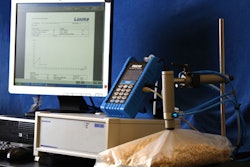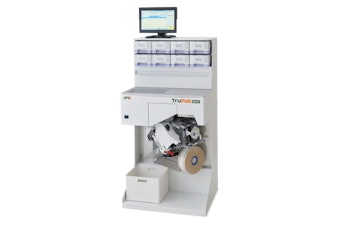
Packaging engineers often feel as if they're on an island, left out of the product development process until there's only weeks before the medical device is scheduled to be launched into the market. That situation could lead to missing the launch date, upsetting company stakeholders, and causing cost overruns.
But the good news, said Jack Dhuwalia, is that such a scenario is avoidable. Dhuwalia's remarks came from his presentation, “Seamless Integration of Packaging With Your Product Development Team,” Feb. 8 at the Medical Device Packaging Update during MD&M West in Anaheim, CA.
“Packaging is part of developing a product, and it has become very specialized, which is good, but a side effect is that may be where that isolation is coming from,” said Dhuwalia, president of JD Consulting.
Dhuwalia told the specialized conference audience that company leaders and the Package Development Team “may have limited packaging experience, so if they don't understand it, they may go through all of their medical device development steps, and then leave packaging and labeling for the end of a project.” He said that lack of understanding includes not realizing that it can take months to install, set-up, test, qualify, and validate machinery, install any necessary related fixtures, and determine and acquire specialized materials for the job.
Showing a slide with a sandwich inside a plastic lunch baggie, he said that management doesn't always understand why a medical device can't be “put in a plastic bag and shipped.”
He said, “Packaging has a responsibility to be part of the team. Our job is to educate, but not complain or preach, or they will stop listening. Demonstrate your skill with knowledge and provide options. Packaging is part of the puzzle that makes the product work, so approach management so they understand 'what's in it for me.'”
Noting that R&D personnel visit doctors and nurses for research purposes during the product development process, Dhuwalia suggested that packaging professionals invite R&D and management into the packaging lab to help educate them on the risks, the options, and the costs to help package a product so that it may be launched on time, and works as planned while also meeting economic and regulatory requirements.
“Pizza and soda is also a nice touch,” he added. “In short, develop the understanding that packaging is part of the solution, not a problem,” and create an environment in which packaging input is sought out early on during the package development process.
-Jim Butschli, Editor, Healthcare Packaging
But the good news, said Jack Dhuwalia, is that such a scenario is avoidable. Dhuwalia's remarks came from his presentation, “Seamless Integration of Packaging With Your Product Development Team,” Feb. 8 at the Medical Device Packaging Update during MD&M West in Anaheim, CA.
“Packaging is part of developing a product, and it has become very specialized, which is good, but a side effect is that may be where that isolation is coming from,” said Dhuwalia, president of JD Consulting.
Dhuwalia told the specialized conference audience that company leaders and the Package Development Team “may have limited packaging experience, so if they don't understand it, they may go through all of their medical device development steps, and then leave packaging and labeling for the end of a project.” He said that lack of understanding includes not realizing that it can take months to install, set-up, test, qualify, and validate machinery, install any necessary related fixtures, and determine and acquire specialized materials for the job.
Showing a slide with a sandwich inside a plastic lunch baggie, he said that management doesn't always understand why a medical device can't be “put in a plastic bag and shipped.”
He said, “Packaging has a responsibility to be part of the team. Our job is to educate, but not complain or preach, or they will stop listening. Demonstrate your skill with knowledge and provide options. Packaging is part of the puzzle that makes the product work, so approach management so they understand 'what's in it for me.'”
Noting that R&D personnel visit doctors and nurses for research purposes during the product development process, Dhuwalia suggested that packaging professionals invite R&D and management into the packaging lab to help educate them on the risks, the options, and the costs to help package a product so that it may be launched on time, and works as planned while also meeting economic and regulatory requirements.
“Pizza and soda is also a nice touch,” he added. “In short, develop the understanding that packaging is part of the solution, not a problem,” and create an environment in which packaging input is sought out early on during the package development process.
-Jim Butschli, Editor, Healthcare Packaging






















